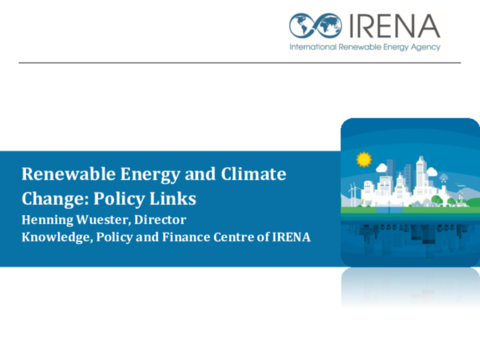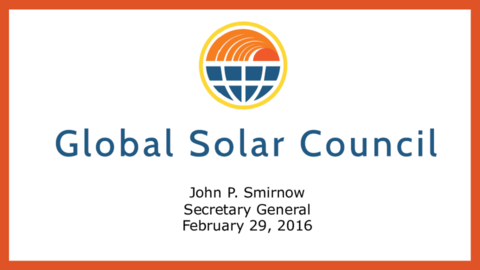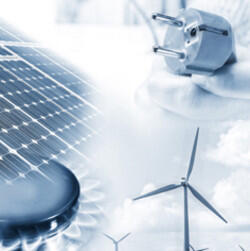
What does the COP21 agreement mean for renewable energies?
What does the COP21 agreement mean for renewable energies?
Expert panellist speakers will give their views on the Paris UNFCCC 21st session of the Conference of the Parties (COP21) agreement, what it means for the development of renewable energies and the role renewables have in meeting climate goals.
Webinar presentations
Speakers
Wael Hmaidan
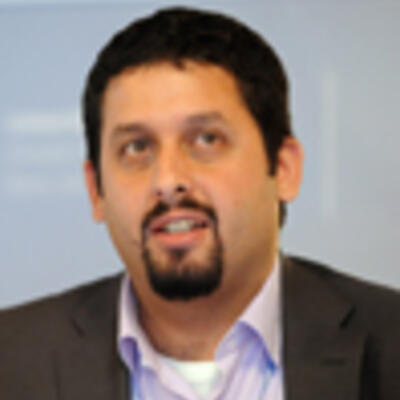
Wael is the director of Climate Action Network (CAN) – International since April 2012, but has been active in the network since 2008. Wael Hmaidan is a social entrepreneur and founder of IndyACT, an organization that started in Lebanon in 2007 and in less than five years spread all over the Arab World and established presence in Europe and few other regions. Wael has more than 16 years of experience in NGO management and environmental campaigning in a number of NGOs. His work on this issue started in his capacity as the Greenpeace campaigner for the Arab World, where he helped established the energy and marine reserves campaign in the region. Wael’s focus and main issue is climate change. Through the climate campaign which he established in IndyACT, he was able to influence Arab climate policy and raise the priority of the issue among public and governments. Wael has been attending all international climate change negotiations for the past four years, including as one of the lead negotiators for the Lebanese government negotiating team in the UNFCCC. Wael has lived all his life in Lebanon, but considers himself as a global citizen. He obtained an Executive MBA degree from INSEAD, and whenever the opportunity arises, Wael works on strengthening civil society in the Arab region, especially after the Arab spring.
Henning Wuester

Henning Wuester is Director, Knowledge, Policy and Finance at the International Renewable Energy Agency (IRENA). He oversees the Agency’s work on knowledge, policy and finance, including: efforts to produce up-to-date and authoritative renewable energy data and information; analysis to identify best practice in renewable energy policies and finance; and advice and support to countries, tailoring policy and investment analysis to renewables deployment in the field. Prior to joining IRENA, Dr. Wuester worked for the Green Climate Fund (GCF) as Senior Manager at the Interim Secretariat, supporting the GCF Board, developing the Fund’s business model framework, administrative policies and procedures, and negotiating the headquarters agreement with the Republic of Korea. Previously, he was Special Adviser to the Executive Secretary of the UN Framework Convention on Climate Change (UNFCCC), and worked at the UN Economic Commission for Europe (UNECE) in several roles in the secretariat of the Convention on Long-range Transboundary Air Pollution. In both organizations a focus was on the linkages between energy policy and climate change or air pollution and involved energy modelling at an international scale. Henning Wuester started his career as Assistant Professor in the economics faculty of the University of Munich and holds a PhD in Economics from the University of Munich.
John Smirnow
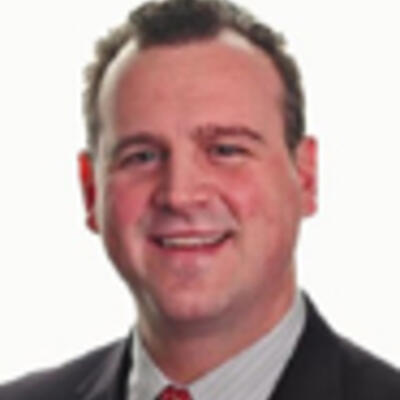
John Smirnow is Secretary General of the Global Solar Council (GSC). The GSC was established on December 6th at COP21 in Paris by the leading regional and national solar associations to unify the solar power sector at an international level, share best practices, and accelerate global market developments.
From 2011 to 2015, John served as Vice President for Trade & Competitiveness at the Solar Energy Industries Association (SEIA). During his tenure at SEIA, John led the organization’s efforts to resolve the U.S.-China solar trade conflict and its codes and standards and sustainability initiatives.
John has also served as Chairman of the U.S. Department of Commerce Renewable Energy and Energy Efficiency Committee and Member of the Office of the U.S. Trade Representative Trade and Environment Policy Advisory Committee. He received his Bachelor of Arts degree from the University of Michigan, Juris Doctor from Western Michigan University Thomas M. Cooley Law School, and LL.M. from the Georgetown University Law Center.
Additional services
Webinar recording
We understand that sometimes the time of the webinar may not suit people in many parts of the world. While we try to alternate webinar times to suit as many time zones as possible, it is not always possible. Therefore, we will post the recording of the webinar and the presentations, on this webpage for 24 hours after the live event. After 24 hours, the webinar recording will be posted in the Members Area only.
ISES Members Area
As a special service for ISES members, the recording and presentations of this webinar will be posted in the ISES Members Area. Recordings from past webinars are also filed here for you to watch again when you like. To access the ISES Members Area, simply log into your ISES account (https://join.ises.org) and select "Members Area" from the top menu. Select "Webinars" and then choose which webinar recording you would like to view.
Certificate of Participation
ISES members may also request a certificate of participation. This is a document stating you attended this event and may be useful for your Resume or as a reminder of this webinar.
Questions and Answers
During the live webinar, there is a "questions and answers" session within the last 10 to 20 minutes. Unfortunately not all questions from participants can be answered in the time-frame of the webinar. However, we collect your questions and the panelists take time to answer them after the live webinar. The answers are then posted in the ISES Members Area, for you to read through in your own time.
Access
Access the ISES members Area by logging into your ISES account: Log in to my ISES account and access the Members Area
Please note that only current ISES members have access to the ISES Members Area. If you are not an ISES member, you can join easily by creating your ISES account and selecting your membership: Create an ISES account and become a member.
